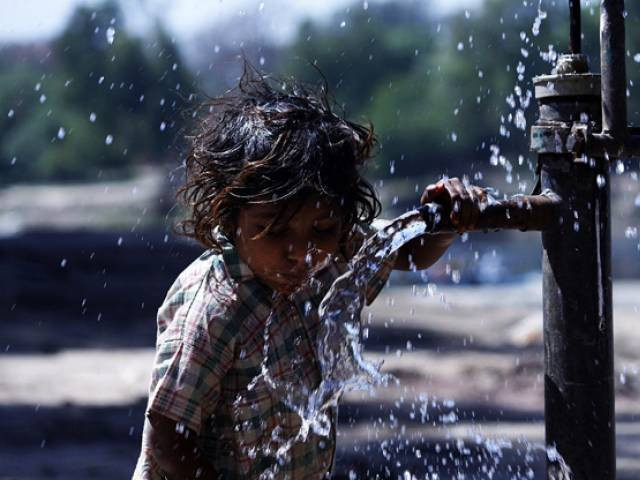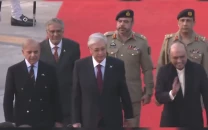CCI nod to national water policy on the cards
The policy calls for making water delivery services economically and financially sustainable

PHOTO: ONLINE
The policy says the impact of climate change – intensification of floods, erratic monsoon rains and droughts – is already evident in Pakistan; and rising temperatures, resulting in enhanced heat and water-stress condition, particularly in arid and semi-arid regions, will lead to reduced agriculture productivity.
CCI approves new amendments to allow more control to NEPRA
In this scenario, the proposed policy calls for making water delivery services economically and financially sustainable and puts emphasis on the social and economic value of water. Under the policy, the concept of affordability will be applied to social uses but water supply will be free of charge for environmental and ecological needs.
The Indus Waters Treaty (IWT) provides a mechanism for water sharing with India, but the government observes that provisions for unlimited hydroelectric power development in upper catchments have the potential of threatening water availability in lower catchments during the low-flow periods.
Upstream developments on the Kabul River are also being planned and implemented while no formal agreement exists for sharing the river’s water. Under the policy, a mechanism will be established for sharing trans-boundary aquifers and possibility of joint watershed management, including sharing of real-time information.
CCI approves Rs177.6 billion flood protection plan
Additional water for Karachi
The CCI is also likely to approve allocation of 1,200 cusec additional water for Karachi. The Sindh government had demanded of the federal government to table the issue before the CCI.
Sindh claimed that it had allowed water for the twin cities of Islamabad and Rawalpindi subject to the condition that Karachi would also be given additional 1,200 cusec water for domestic use.
At present 1,200 cusec of water from River Indus is required for the K-IV project and the requirement would go up to 1,800 cusec by 2020 and 2,400 cusec by 2025.
Sindh government said fresh requirement of water should also be shared by other three provinces since Karachi has accommodated people hailing from those provinces.
Supply of gas to localities near fields
The CCI will also take up the issue of supply of gas to localities and villages in 5km radius of gas producing fields. Gas companies are also encountering problems in their exploration work and gas theft is on the rise near the producing fields, especially in Khyber-Pakhtunkhwa (K-P).
The Centre wants provinces to share cost to provide gas to the localities near gas producing fields. But the provinces have refused to foot the bill of new gas supply schemes planned near producing fields in order to stave off the threat of protest by local residents.
They have asked the federal government to release the entire capital.
The Ministry of Petroleum has found it impossible to undertake such projects for gas supply to the villages and localities falling within 5km radius of the producing fields because of the absence of funds. Sindh argued that Centre may pay the entire cost whereas Balochistan and K-P suggested that the cost should be borne by gas utilities.
Fiscal Coordination Committee (FCC)
The CCI may approve formation of a new committee – fiscal coordination committee – proposed by the finance ministry to strengthen fiscal coordination between the federal government and provinces with the objective of achieving consolidated fiscal targets as well as macroeconomic stability. The finance ministry is seeking to establish the fiscal coordination committee after consultations with the provinces.



















COMMENTS
Comments are moderated and generally will be posted if they are on-topic and not abusive.
For more information, please see our Comments FAQ